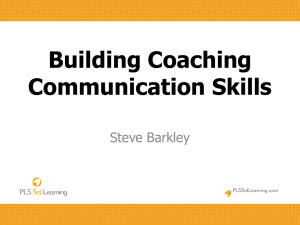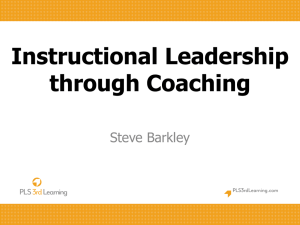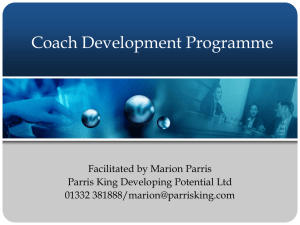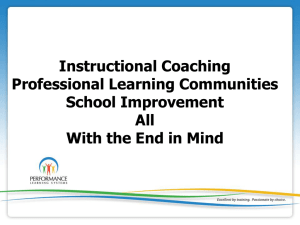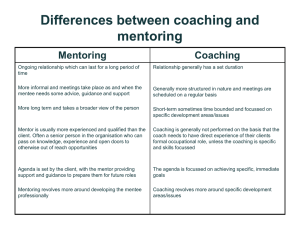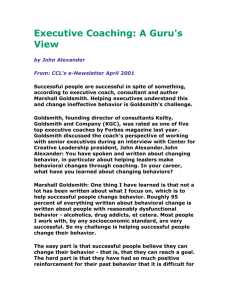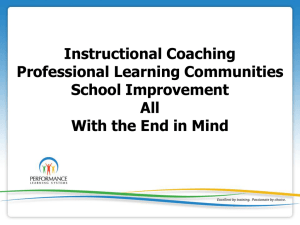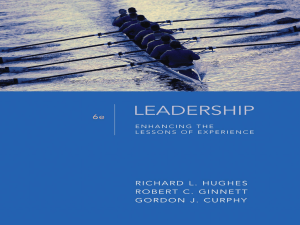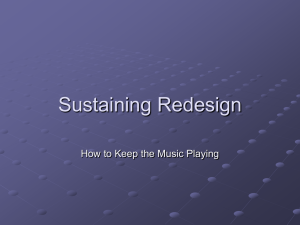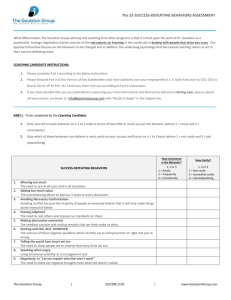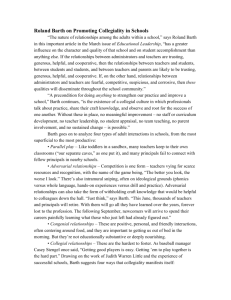Peer Coaching
advertisement
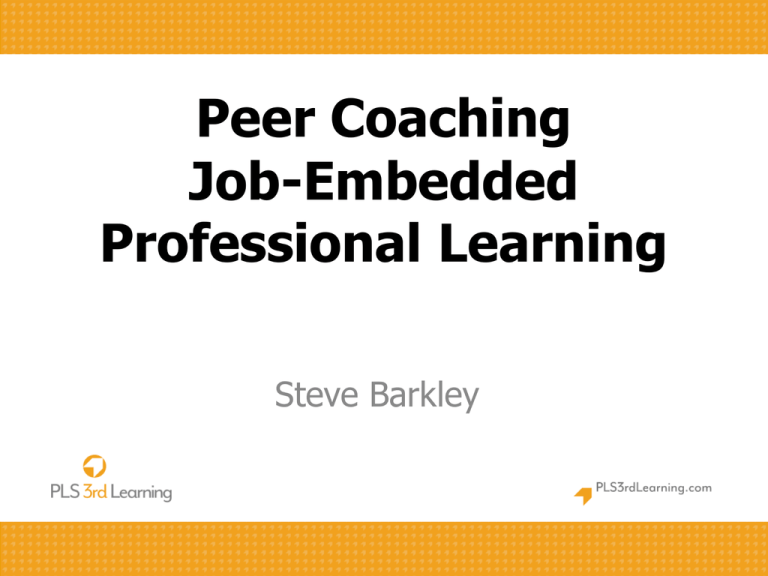
Peer Coaching Job-Embedded Professional Learning Steve Barkley Coaching Beliefs 1. Everyone working in the school should be observed once a week and receive feedback. 2. The most skilled and professional educators should be coached the most. Instructional Coaching EVALUATION Outside Criteria MENTORING SUPERVISION PEER COACHING Teacher’s Choice School Change Source: Model developed by Stephen Barkley Student Achievement What is the definition of student achievement that drives your work? STUDENT ACHIEVEMENT GOALS • ACADEMICS - knowledge and skills to be successful in school and life. • LIFE SKILLS - aptitude, attitude and skills to lead responsible, fulfilling and respectful lives. • RESPONSIBILITY TO THE COMMUNITY - attributes that contribute to an effective and productive community and the common good of all. 7 Student Behaviors What student behaviors need to be initiated or increased to gain the desired student achievement? Student Behaviors • Reading as choice • Writing • Finding problem to solve • Researching • Asking Questions • Following a Passion • Persevering/Effort • Working independently and collaboratively • Taking risk in learning • Using technology to research and produce • Adapting to change Teacher Behaviors What teacher behaviors are most likely to generate the desired student behaviors? 10 Teacher Behaviors • Teach the desired student behavior. • Model the desired student behavior. School Change Source: Model developed by Stephen Barkley Celebrate Gain Options Practice Consciously 13 Gordon’s Skill Development Ladder The Art of Teaching Unconsciously Talented Unconsciously Unskilled Consciously Unskilled Unconsciously Skilled Consciously Skilled Gordon’s (1974) Skill Development Ladder 14 Learning Dip 15 Teacher Relationships • • • • Parallel Play Adversarial Relationships Congenial Relationships Collegial Relationships Roland S. Barth Relationships Within the Schoolhouse ASCD 2006 16 How Administrators Support Peer Coaching Technical Coaching Collegial Coaching Challenge Coaching Staff Development Relationships Solutions & Opportunities Robert J. Garmston (1987) Barth: By collegiality I mean four things • One, teachers talking with one another about the work they do -- talking in faculty meetings, in hallways, in classrooms, at the dinner table about practice. • Second, sharing that craft knowledge, shouting it from the mountaintop, and honoring it when someone else is sharing it. Barth • Third, making our practice mutually visible. That is, you come into my classroom and watch me teach seventh-grade biology and I come into your classroom and watch you teach ninth-grade geometry, and, afterward, we talk about what we are doing and why, and what we can learn from each other. • Above all, collegiality means rooting for the success of one another. If every adult in the school is rooting for you, when the alarm clock rings at six a.m., you jump out of bed to go to that school Pre-Observation Conference Observation Post Observation Conference 20 Evaluative Creative Personalized Vision - Mission Strategy - Curriculum Agenda Tactics - Lesson Plan Operations - Teaching Skills Focus LISTENING TEST • You believe that . . . . . . . . . . . • My focus is . . . . . . . . . . . . . . . • I should notice . . . . . . . . . . . . . Steve Barkley Ponders Out Loud http://pls3rdlearning.com/blog
